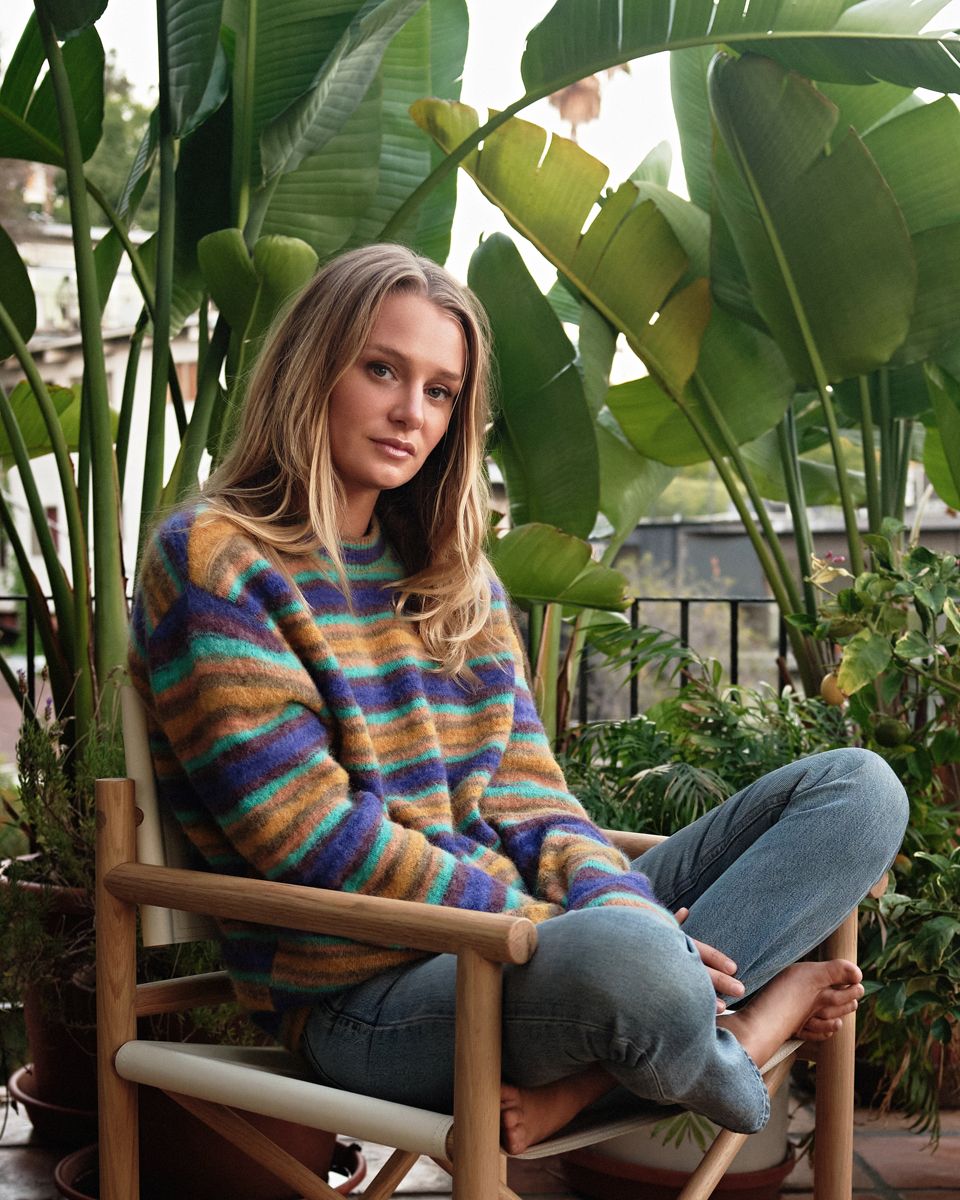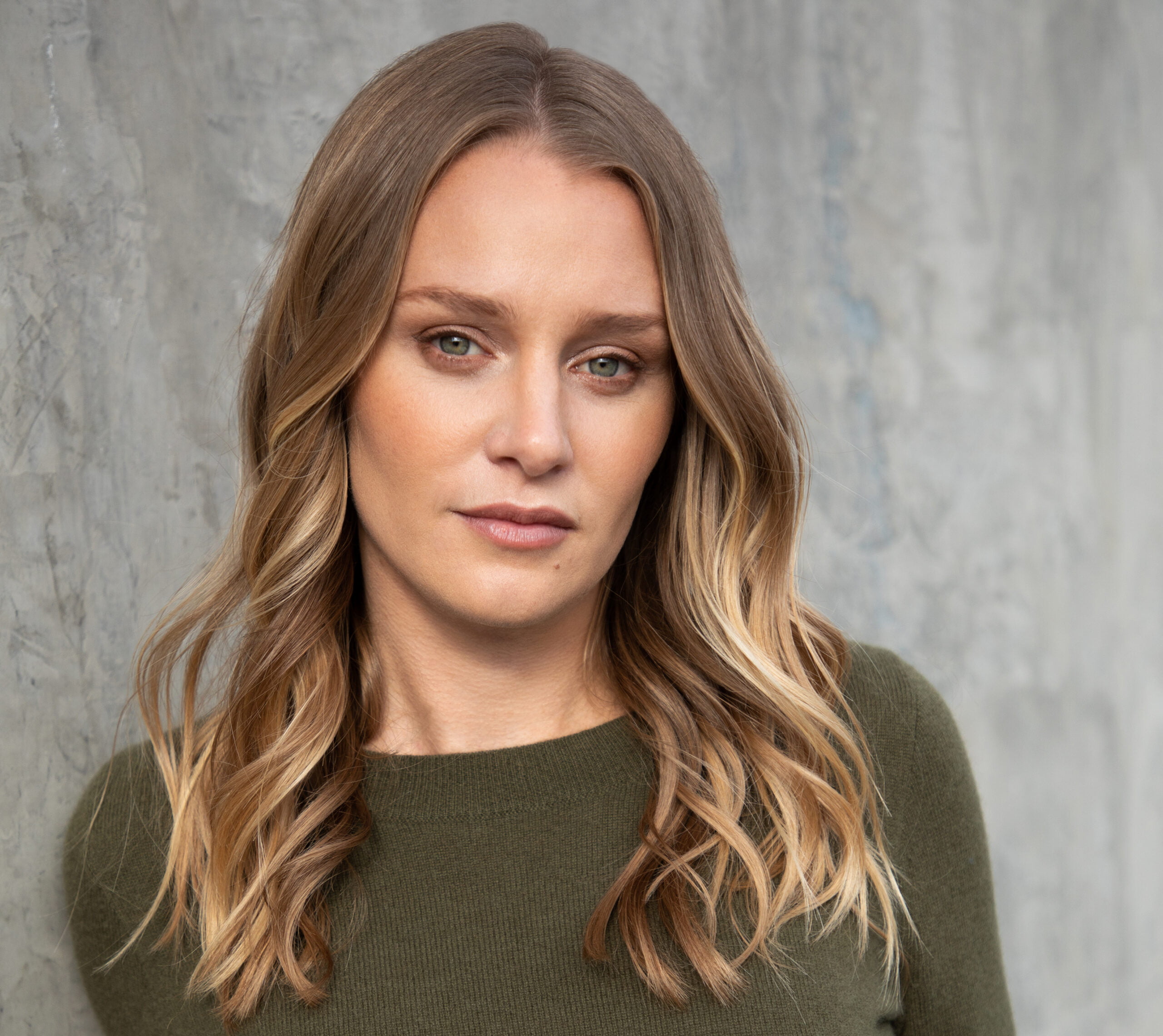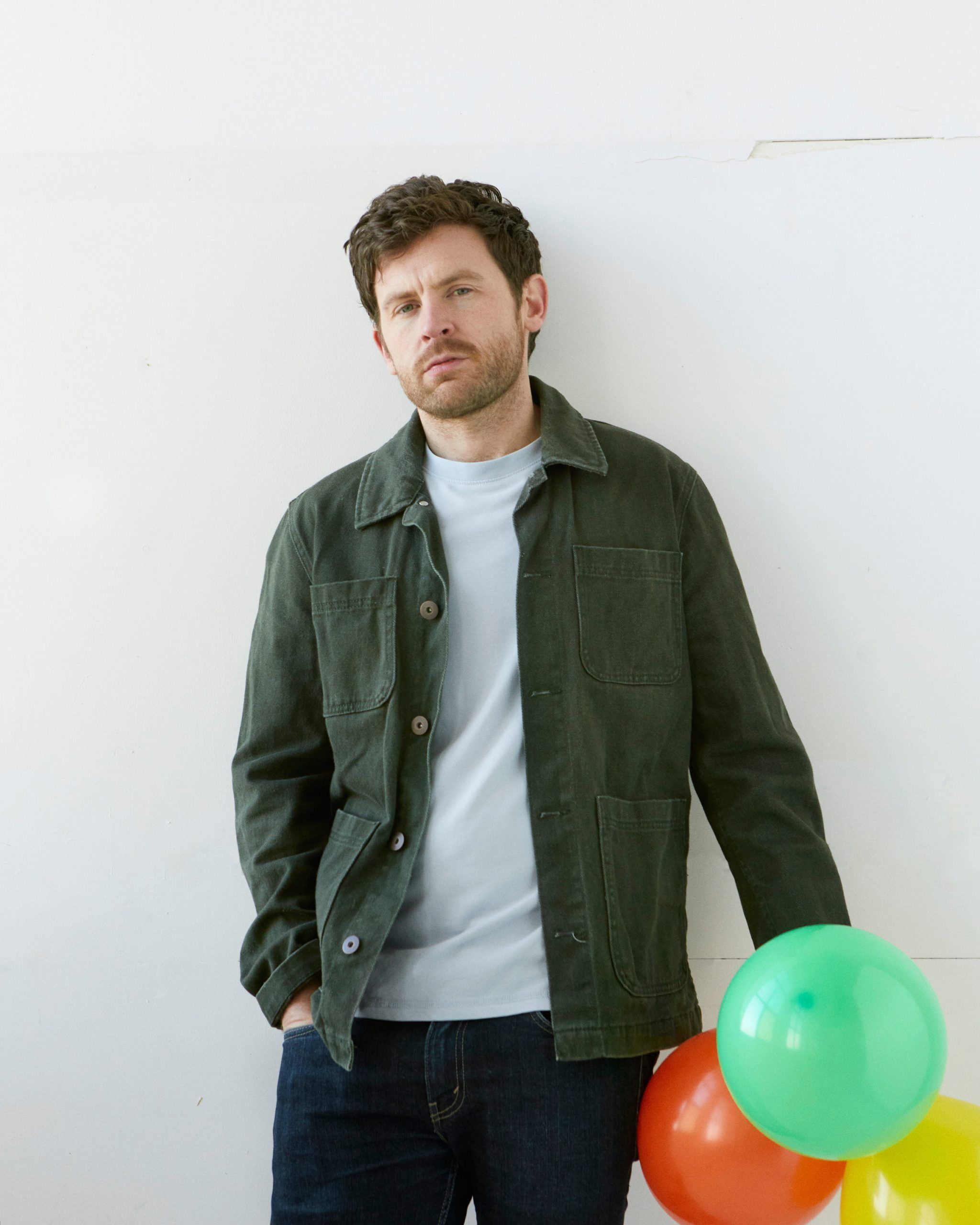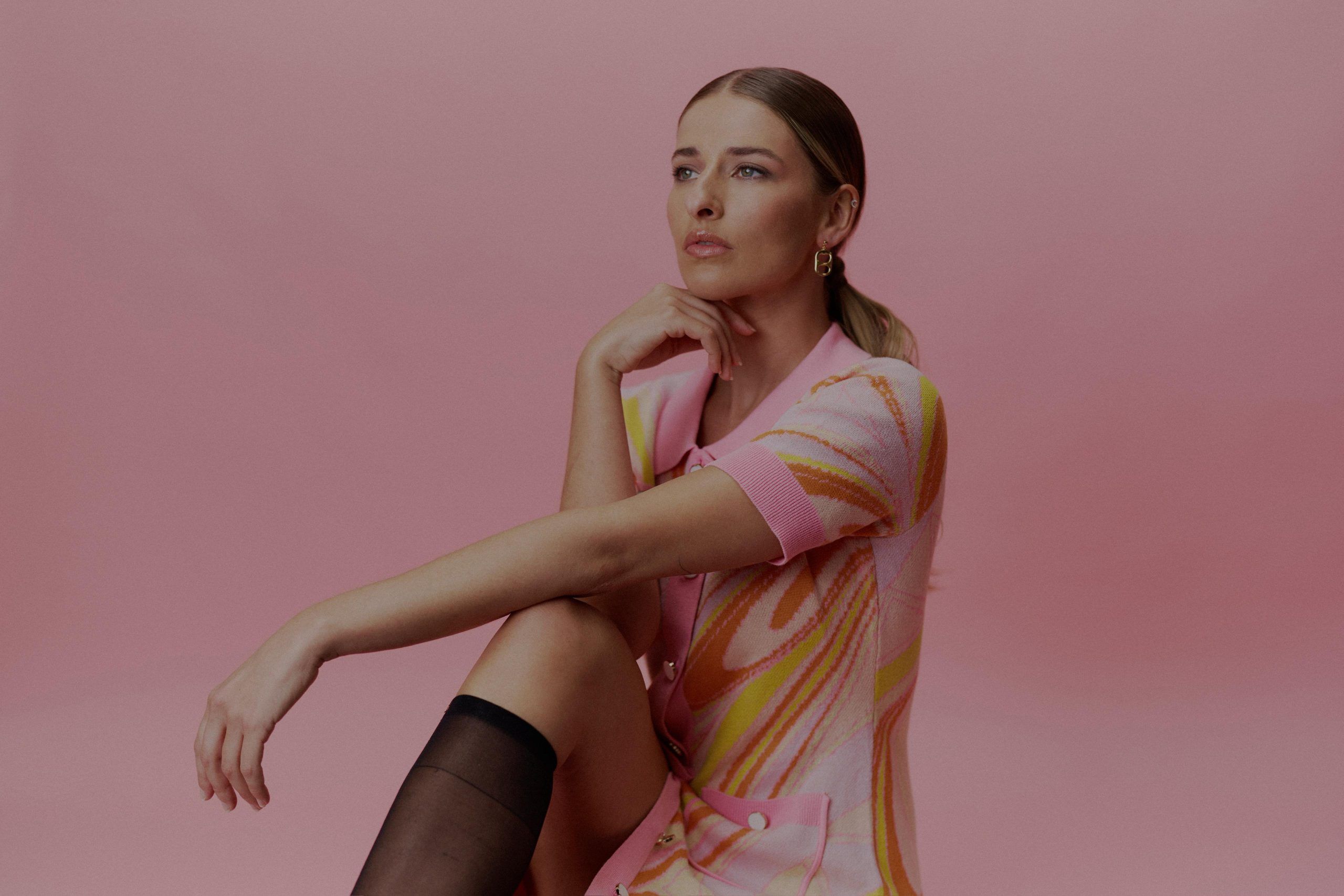Actress & writer Elizabeth Gilpin gives an insight into one of the most insidious industries in Stolen, a memoir that will be deemed one of this year’s most powerful & gripping books.
When reading Stolen: A Memoir, the debut non-fiction book from actress & writer Elizabeth Gilpin, there are moments when one must remember she actually lived through this — it is not the screenplay of one of the myriads of films she’s starred in, nor is it a fictional tale that didn’t actually happen. What started with Gilpin struggling with undiagnosed depression ended up being the catalyst for her ending up at a so-called “therapeutic” boarding school. In her memoir, she bravely recounts her experience in what feels like a surreptitious industry hiding in plain sight as these boarding schools are spread out across the country, used as a place to psychologically abuse and belittle their students into submission.
Elizabeth writes with such a deft touch, allowing readers into her mind as she retells the stories and experiences in such vivid, expressive detail and frequently weaving humour throughout her prose to remind us that even in the darkest of moments, there’s always some light, too. Where some actors are superheroes or action movie stars, Gilpin is a different force of nature; refusing to lose her identity even after everything she’s experienced. Her story is one of survival, resilience, and perseverance, and now Gilpin wants to use this book as the beginning of a much-needed conversation about these so-called schools.
1883 Magazine’s Kelsey Barnes spoke with Elizabeth Gilpin about writing her memoir Stolen, navigating through trauma, starting the conversation around these institutions, and more.
Trigger warning: this interview discusses abuse, trauma, and miscarriage.
I have to say this is one of the most gripping memoirs I’ve ever read. The last time I read a book like this and it captivated me so much it was Wild by Cheryl Strayed.
It’s funny you say that because I am in the middle of reading it! It was too hard to read it when I was writing Stolen but I’m loving it right now. A lot of the nature and hikes she’s talking about sounds so familiar.
The epigraph at the start of the book touches on freedom — to choose one’s attitude in any given set of circumstances, to choose one’s way. I feel like that, in addition to persevering despite the trauma you experienced, is reflecting in your decision to write and publish this book. In the book, you discuss being locked up, both physically and mentally. Was writing this book a freeing experience for you in a way?
Absolutely. I feel in many ways a massive weight has been lifted. I talk about this in the book, but for a long time, I didn’t want to accept what I’ve been through. Sometimes it felt like I would wake up and the whole thing would just be a nightmare. Writing the book, in its own special way, was freeing because it gave me the tools to let go of all of the residual and resentful feelings I was still carrying with me. It helped me with forgiveness and acceptance and taught me how to move on. I used to feel very misunderstood at times because I never knew how to tell my whole story without telling my whole story, you know? This was the best way to just get it out there and now that it is out there, I feel like I understand myself better. I had pushed so much of it under and now I’ve had to accept it and understand why I’m the way I am and why I do some of the things that I do. Stolen has made me more accountable — there are no more excuses. It’s helped me grow up.
What you experienced was during such a formative time where I feel like you were stripped away from your teens, so it’s nice to hear that you’ve been able to come full-circle and find a sense of peace.
It is really unfortunate, but I’m even at such a different place with it now than I was when I started writing the book. I feel this freedom that I did not have; it feels like I’ve undergone a new healing process. Once I started writing it and mapping it out, it was a new sense of freedom.
Speaking of mapping it out, how did you approach writing this book — I know you went back through old journals and such, but I’d love to know how you decided to start and what gave you the courage to do so?
I started this book in one form or another around 7 years ago. I’ve been researching this topic and reading anything & everything I could find on it. I asked my parents to send me every letter, which was not enjoyable at all. It consisted of a lot of reading of my own stories, the research books that are out there, and a lot of self-reflection and pulling on those experiences. My best friend that went to the school is someone I’ve been very close with for 15 years and she was researching it with me because she was working on her thesis around the same topic. We were constantly sharing things we’d find, she’d read my letters and I’d read hers, and we’d get each other’s perspectives on that time. It only just confirmed what I knew because we said and felt the same things. She was such a huge process of this.
I also had to take a lot of time off, too. I’d go to Montana and reflect on what I wrote or what I was thinking about and figure out what I was uncovering. It took 6 to 7 years to really come to terms with what I, and we, experienced. I started writing it in quarantine but I had worked on a proposal for a year before that and before that, I was researching to write a proposal. It felt like pushing a boulder for years because it existed in so many forms, but once I figured out the message I wanted to get across, that’s when it felt like I was onto something. I needed the reader to understand what it was like to exist in those woods and in that school. I wanted people to know these places exist and kids are still in them today. It was important to me to have people read this book and walk away with the understanding of what happens in these places and how, in my opinion, it harms them. My hope with the book is to show just how damaging it was for me and how long it took me to get past what I went through.
I cannot believe these places even exist. I’ve heard of boarding schools and places like that, but nothing to this extent.
That’s what so many people’s reactions have been which kills me! These places hide in plain sight. I’m very happy people are now learning about it.
I was reading the reviews on GoodReads and a few have touched on their own experiences at the school and they applaud you for shining a light on both what you all experienced and also the unregulated industry as a whole. One review stated “do I recommend this book? A thousand times yes. Elizabeth deserves to have her story heard” and, “I think I’ve coped by downplaying it, but I’m so, so glad that this book exists, to remind me that I wasn’t alone in my experiences and to shine a light on an industry that operates almost entirely in darkness.” What does it mean to you to hear these comments?
Those comments are why I wrote this. I have received a lot of feedback in private messages who might not be ready to discuss what they’ve been through, but when I receive them I know that is why I wrote Stolen. I’m not saying I’m perfect; I still don’t always know the best way to process what I went through. The one thing I did was in an attempt to not only help myself but to start a conversation about what happens in these places. When I’m down or doubting myself, those are the comments I go back and read. People have told me “My kid is in the woods right now and I just read your book and I’m pulling them out” or people saying they’ve never known how to talk about it before. Those are the comments I read when this gets hard because it does get hard — every day is a new journey for me. A lot of people are happy they can see that it did happen and they are not crazy and that, most importantly, people feel the same way as you.

I loved the way you allowed viewers into your mind & thought process through the use of italicizing your thoughts. You really are a brilliant storyteller and I know you found love through telling stories through acting. It sounds like it really pulled you out of the depths of trauma and depression. How has that anchored you during both the aftermath of the school and even during the writing of this book?
I took a break from it when I was writing this book because it took a lot out of me. There were times I called everyone I know and said I’m not writing this! I’m done! I don’t care, it’s not coming out! I found acting right after my miscarriage, which I talked about in the book. I was very, very scared of therapy and I didn’t want anything to do with it after going to that school. My friend suggested I go to an acting class and I realized it’s almost like therapy [laughs]. My first monologue was about a woman who had a miscarriage and I did not stop crying the entire way through. My teacher thought I was amazing because I was so in touch with my emotions, but I was dying inside. I realized it was this great release of emotions because I had suffered so many different life experiences that I did have a lot to draw from, for better or worse. I learned in time that this is something that I can not only do for myself but do for other people. That being said, my acting coach in Los Angeles is actually who made me get a therapist! [Laughs] She is who pushed me and referred me to a therapist which I am grateful for now, but at the time that [acting] was the only outlet because I was able to feel without having to trust someone with my own words. I could feel a miscarriage but through someone else’s experiences. Now, I’m able to process what I’ve gone through with my own experience and work so I guess that’s where I’ve grown up… and slowly started to trust more.
Was there any media — music, books, films — that you leaned on while writing this book or while you were going through your healing process — whether they were about the troubled-teen industry or something completely irrelevant to that?
It felt like I read every single memoir, besides Wild of course because it felt too closely related. I wanted to understand what each person’s voice sounds like and what sticks out for them, so I uncovered that in books. Music, not so much. Music is tough for me because it was used as abuse at school, although I listened to the CD they gave us when we graduated so I listened to that on a loop which was not a fun experience. I wouldn’t say I turned to music, but I will say now that the book is done I have a different experience with music. Travelling was big for me; I needed to find quiet places in nature and disconnect with no phone.
You’re an advocate for mental health and how it is continuously mistreated and misdiagnosed, with the way yours was handled being so extreme. One of the most touching and heartbreaking quotes in the entire book for me was the paragraph where you begin saying you suffer from depression but that “All I ever needed was for someone to take the time to really hear me. To interpret the cry for help that was at the center of every explosive fight or drunken night. I didn’t need tough love. I just needed a little extra help.” I know you didn’t ask to be an advocate or to be the person to start the conversation surrounding it, but how does it feel to be someone really shining a light on this industry?
That quote has been sticking out for a few people. I definitely did not only write this book for this industry, but for any child or parent or sibling who’s ever felt misunderstood, alone, or sad. My hope was it would speak to them. Obviously, the book was about my experience in the industry so the biggest focus is that kids are still in these institutions today. If this is one small thing I can do, even if it only helps the two or three people who have already said they are taking their kids out, I’m fine with that. If it helps give a voice to all the people who have not known how to talk about it, then that’s enough for me.
These parents aren’t sending their kids to these places because they want to hurt their kids, they genuinely want to help them and are being told they are doing the right thing. One woman wrote and said, “They keep telling me that my kid is not depressed, he’s just manipulative and I read your book and my gut is telling me that they’re manipulating me so I’m pulling them out and he’s coming home.” I can understand why my parents kept me there. I guess that’s why I’m becoming a mental health advocate, but I also think it’s okay to not be okay. I’d say that’s the biggest thing I’m learning — it’s okay to have a bad day or a bad week or a bad month. We all have it. That’s why it’s important people like Naomi Osaka and Simone Biles discuss this stuff in the news. It’s okay to not be okay.
I know the book deals with heavy themes, but I wanted to find out some things that bring you joy and light now as someone in their 30s.
I’m big with nature, as you can probably tell! I love hikes, I love being outside. I love my friends & reading. I love tacos.
Do you still love chocolate chip pancakes?
Yes! Love them.
I was so concerned when reading the book — I thought they’d be ruined for you.
Oh no, I definitely still love them. There was a theme on my Instagram where you’d see them every now and then! [Laughs] I would say I still have a lot of the same hobbies I’ve always had. The only thing I, unfortunately, didn’t explore was sports because there were no sports at that school, so my hopes of going to the Olympics didn’t happen. Who knows, though… Maybe those very people will read my book one day! Everything I used to do I still do now; I definitely have a very healthy, fulfilling life with great friends and great people around me.
Lastly, a question that I like to ask everybody is, if you could manifest something for yourself this year, what would it be?
I would love to be even more at peace. Although I’ve forgiven people, I still have a lot of pain for the other people it’s hurt and would love to find a way to help them. I’m still hurting, too. I don’t know if there will ever be a time where I’m not hurting because the reality is I lost people I love and there’s still pain there, but I would love to take that pain and do something else with it. I do feel like I have a pretty great life — I’ve come a long way from where I was.
Interview by Kelsey Barnes
Header Image by Alberto Vasari
Feature Image by Julian Ungano
Stolen: A Memoir by Elizabeth Gilpin is out now via Grand Central Publishing




